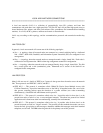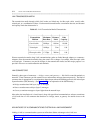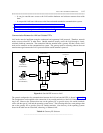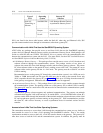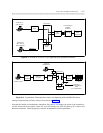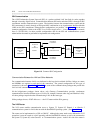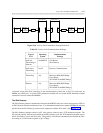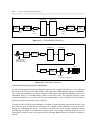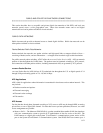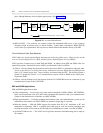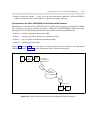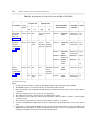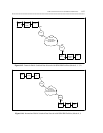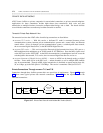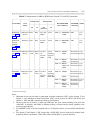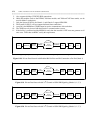PUBLIC AND PRIVATE DATA NETWORK CONNECTIONS
_ ______________________________________________________________________________________
_ ______________________________________________________________________________________
_ ______________________________________________________________________________________
This section describes how to use public and private digital data networks to link DTEs and local area
networks spread across a wide geographical area. These data networks ensure end to end digital
transmission and can be packet-switched or circuit-switched.
PUBLIC DATA NETWORKS
Public data networks provide on-demand access to shared digital facilities. Public data networks can be
either packet-switched or circuit-switched.
Packet-Switched Public Data Networks
Packet-switched data networks use packet switches and high-speed links to transport blocks of data —
consisting of header, trailer, and text information — as integral units from their origin to their destination.
For public network packet switching, AT&T offers the ACCUNET Packet Service (APS). APS can transmit
packets of data throughout the United States. The packets must be formatted according to X.25 protocol,
and connections with other packet switches, including international APS, are governed by X.75 protocol.
ACCUNET Packet Service
ACCUNET Packet Service (APS) delivers X.25 packetized data throughout the U.S. at digital speeds of 2.4
through 56 kbps and analog speeds of 2.4, 4.8, and 9.6 kbps.
APS Applications
APS is ideal for applications where information is transmitted in short bursts and at random intervals. This
may include:
• Database searches and updates
• Electronic messaging
• Electronic order exchange
• File transfers
APS Access
For data that has already been formatted according to X.25, access to APS may be through DDS, an analog
private line, or even a digital DS1 channel. For data that has not yet been packetized, however, two other
access arrangements are possible:
• Memotec PAD — The Memotec SP/630 PAD is a packet assembler/disassembler (PAD) that interfaces
with your communication system to provide X.25 packetization of data for access to the APS. The
PAD connects to a digital port on the System 75 and Generic 1 communications system, and to an EIA
port on the System 85 and Generic 2 communications system. One SP/630 PAD can connect up to 4
8-21



